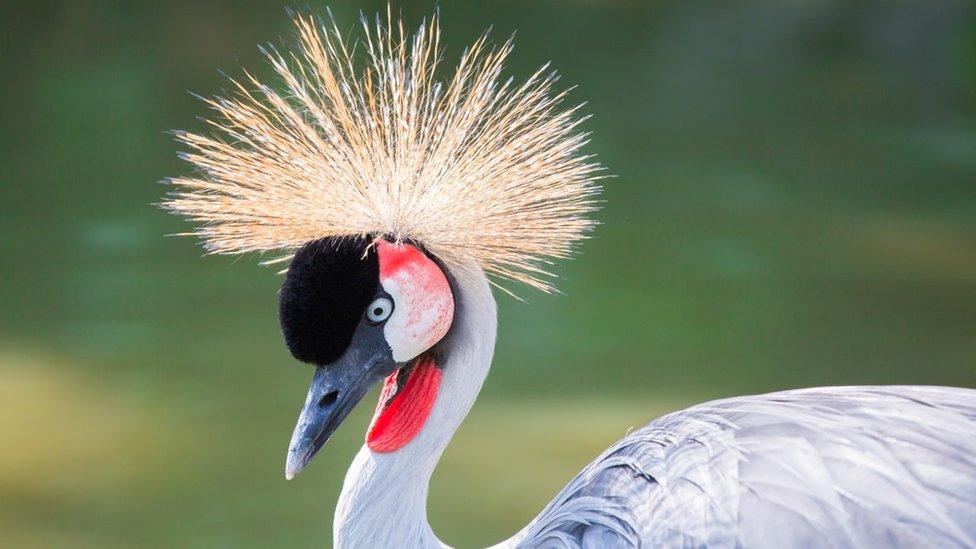David Harewood: Portrait to diversify Harewood House art collection
- Published
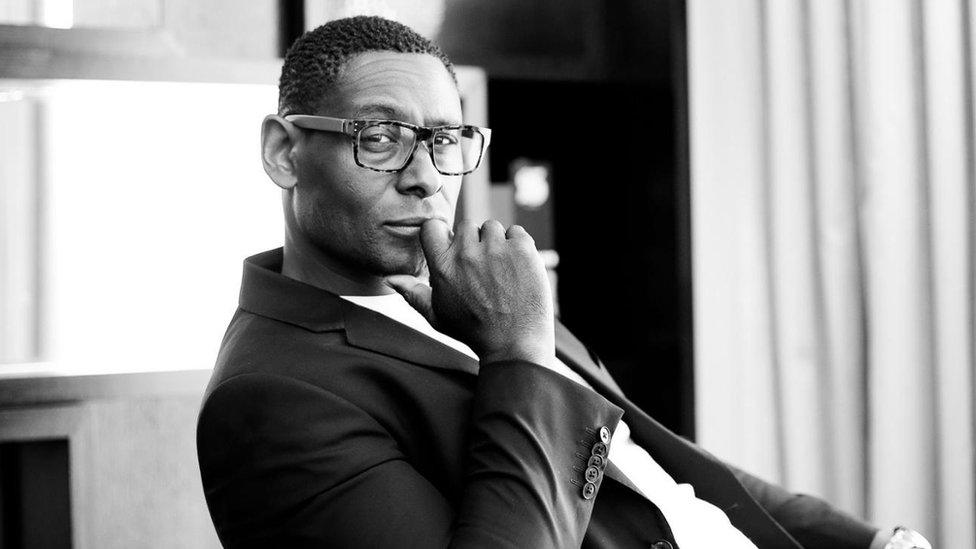
David Harewood is an actor and writer whose ancestors were enslaved on a Caribbean sugar plantation
A portrait of actor David Harewood has been commissioned to go on display at Harewood House, to better reflect its history in its art collection.
The 18th Century house near Leeds was built on the fortune made by Henry Lascelles through the slave trade.
Mr Harewood, known for his role in Homeland, said it was "well overdue".
He was born and raised in Birmingham, but his ancestors were enslaved on a Caribbean sugar plantation owned by the second Earl of Harewood.
The piece will be included in the Missing Portraits series which aims to better reflect the history of Harewood, and will be accompanied by an exhibition exploring his life and celebrating his career, including his role as an ambassador for mental health awareness and racial equality.
The actor said: "To have my portrait presented at Harewood House brings on many complex emotions. It is a day that is well overdue for me and my ancestors, a day that sees their efforts and hard work finally acknowledged.
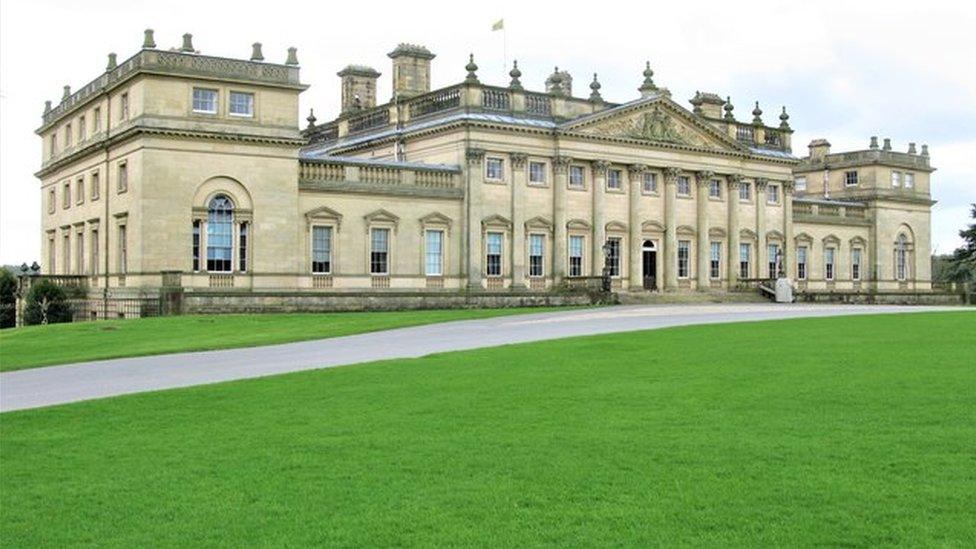
The actor has previously visited Harewood House as part of Channel 5 series 1000 Years A Slave
"I am pleased that we have reached a point when this can happen and I hope it might encourage positive change elsewhere."
Mr Harewood was born in 1965 to Barbadian parents who arrived in Britain in 1957. He grew up in Birmingham and began his career as a film and stage actor in 1990.
In 2021, the actor visited Harewood House as part of Channel 5 series 1000 Years A Slave, meeting David Lascelles, the eighth Earl of Harewood, to discuss both his and the house's historic roots.
David Lascelles and Diane Howse, Earl and Countess of Harewood, said: "We're delighted that David has agreed to be the second sitter in the Missing Portraits series.
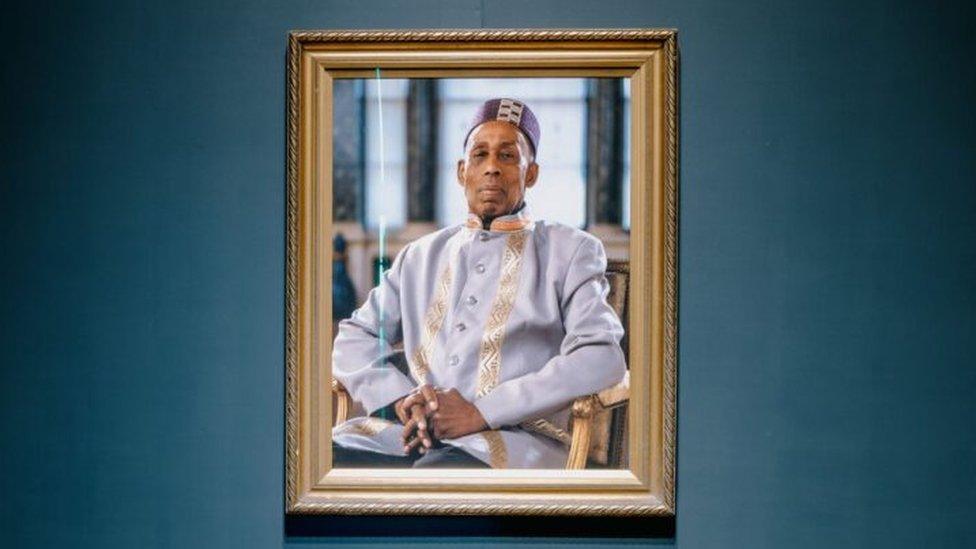
A portrait of Arthur France was the first in the Missing Portraits collection
"His links to Harewood are self-evident and we agree on the importance of sharing our histories, however uncomfortable this might first appear.
"Being honest about the past is the only way to start to address the prejudices of the present and help build a better future."
The first portrait in this series was of Dr Arthur France, founder of Leeds West Indian Carnival, which is now part of the house's permanent collection.
Missing Portraits is part of the Harewood Open History programme, which aims to open up stories about heritage, celebrating people of colour who have deep-rooted links to Harewood.
This portrait will be inspired by the formal style of 18th and 19th Century portraiture and will be produced by Leeds-based photographer and filmmaker Ashley Karrell.

Follow BBC Yorkshire on Facebook, external, Twitter, external and Instagram, external. Send your story ideas to yorkslincs.news@bbc.co.uk, external.
Related topics
- Published10 February 2023
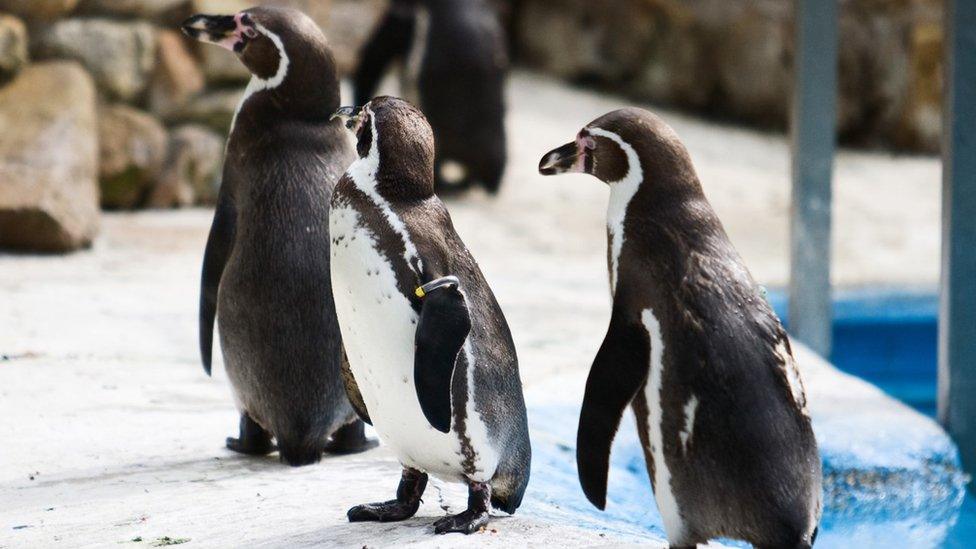
- Published31 January 2023
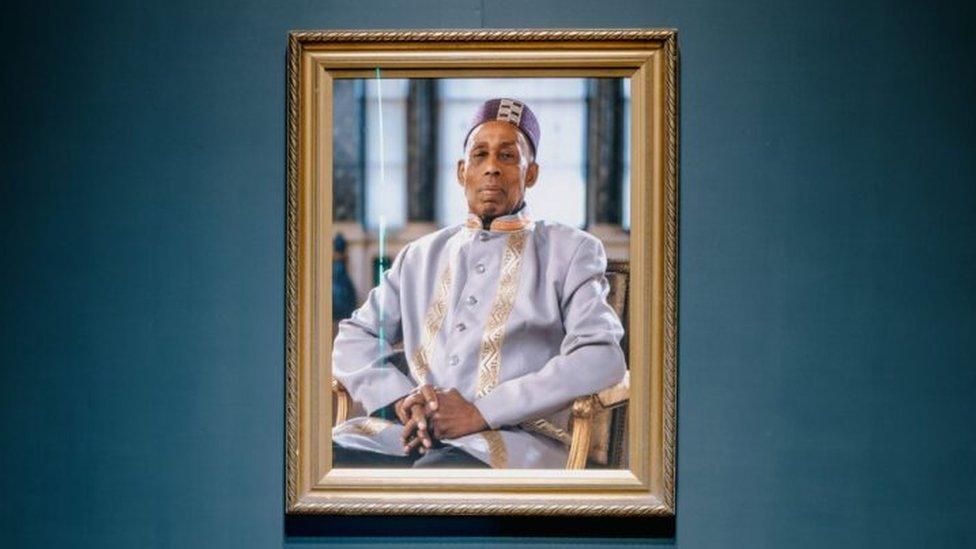
- Published10 January 2023
